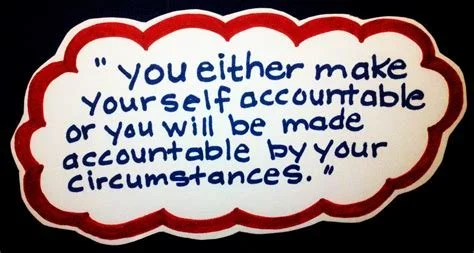HRO 15e Principle 8: Accountability Part 2
Introduction
Accountability is the last of my candidates for principles of High Reliability Organizing (HRO) principles missed by Weick and Sutcliffe (2007, W&S hereafter). The first two were Rigorous Training and Assessment. My bold claim is that without all three functioning well, an organization isn’t practicing HRO. In this second post on accountability, I discuss reasons why people and organizations avoid accountability, the role accountability plays in HRO, and why it is essential for being highly reliable. As in prior multi-part posts, all the references for the accountability posts are at the end of the first post.
Avoiding Accountability
Humans make mistakes and those mistakes can have serious consequences when the stakes are high (Rochlin, La Porte, & Roberts, 1987). This is the tragic nature of the human condition (Reason, 1990). Errors represent a range of phenomena including outcomes that fail to accomplish desired results, deviations from standards (Lei, Naveh, and Novikov, 2016), planning problems, and having a good plan, but executing it badly (Reason, 1990). Despite the ubiquity of human error, people avoid accountability to escape negative emotions, because of a misguided pursuit of high morale, and as a byproduct of toxic leadership.
If errors are commonplace as I claim, why do people try to avoid accountability for committing them? The emotional states that people experience after committing errors can elicit anxiety (Tangney, 1990) and remorse. “Errors typically lead to the aversive feeling that one should have known better” (Van Dyck, Frese, Baer, & Sonnentag, 2005, p. 1229). Anxiety and remorse can also cause guilt (Baumeister, Stillwell, & Heatherton, 1994). People can experience guilt when they feel personally responsible for negative outcomes that violate social or moral norms (McGraw, 1987). A person may feel guilty over violating a standard even when no one is harmed and no one else knows it (Baumeister, Stillwell, & Heatherton, 1994).
Feeling anxious and guilty is unpleasant and can damage self-esteem. People use defense mechanisms (i.e., cognitive distortions) and coping strategies to reduce these negative feelings and protect their self-esteem (Cramer, 1998). Distorting reality to cope with negative emotional arousal is part of normal psychological functioning (Cummins & Nistico, 2002; Orth & Robins, 2014). It promotes an individual’s mental health by maintaining “positive illusions” about themselves and their work. Without the protection of positive illusions, people would be much more susceptible to anxiety and sadness (Bowins, 2004).
The need to protect one’s ego and sense of self-efficacy are not the only motivations for avoiding negative emotional states. Leaders’ desire to maintain high morale and avoid difficult conversations is another. In many organizations, the prevailing culture makes it unacceptable to get others into trouble for the sake of correcting problems (Argyris, 1994). Organizational defensive routines can keep problems from being surfaced and addressed. This prevents people in the organization from investigating the causes of performance problems. Superficial or absence of investigations is the norm because leaders prefer to avoid potential embarrassment and appearance of incompetence. This is profoundly defensive and practically guarantees ineffective problem resolution and learning. Distorting reality to avoid stress or leader embarrassment obstructs essential reflection and learning from error. This is intolerable in HRO.
Toxic leadership and blame-shame cultures also interfere with learning. Organizations that shoot messengers of bad news eventually run out of messengers. Error discovery and management pathologies can exist in organizations practicing HRO just as anywhere else. However, the pathologies are unlikely to persist in the face of “frequent, thorough, and detailed audits of all aspects of the program by individuals who are specifically selected and trained” (Rickover, 1979). This is particularly true when accompanied by forceful backup from the regulator. Audits in HRO typically require organizational causal analysis and corrective action plans. Higher authority reviews mercilessly expose superficial assessments and repeat problems, indicative of failures to learn. This frequently leads to dismissal of toxic leaders because of their adverse impact on performance and inability to learn from errors.
Accountability in HRO
Holding people accountable for errors and lapses in judgment is essential for improving performance (Argyris, 1994). Facing facts about the causes and consequences of errors is a hallmark of HRO. What W&S and other academics observing HRO miss is that almost no one COMES into organizations thinking this way. People come to HRO with biases and practiced defense mechanisms that get exposed and redirected in critiques and many other processes. It is a truism that exposing and correcting cognitive biases is not for the faint of heart.
Before coming to HROs, people are programmed by their mental processes and experiences to apply biases and defense mechanisms to protect their egos from harsh criticism (McLeod, 2008). This is adaptive for individuals, but not for high reliability. Leaders in organizations practicing HRO must rewire this programming.
Defensive, ego-protecting routines typically surface during the problem analysis that is part of double-loop learning (Argyris, 1994). Double loop learning has three parts: recognize the problem, analyze what went gone wrong, and then change what wasn’t working. Critiques are typically the means used in HRO to clarify for all members of the organization what happened, why it happened, and how it could have been prevented (Sandberg & Tsoukas, 2015).
A critique reconstructs sequences of events and operator mindsets that led to an undesired outcome. Critique leaders ask probing, often unsettling, questions about material conditions, procedures, personal observations, and the intentions, assumptions, actions, and interpretations of operators. When you are called to account for all aspects of your performance, it can feel like being put on trial. In some ways, it’s worse than being on trial because you don’t have the benefit of a defense counsel at a critique. Every aspect of operator performance and thinking is scrutinized during a critique.
Holding people accountable for their errors based on their responsibilities is a relentless assault on self-esteem, but normal practice for HRO. The human tendency to resort to cognitive distortions and defensiveness is ruthlessly crushed when attempted by inexperienced members of the organization. This is because leaders in HRO value the problem analysis of double-loop learning over maintaining self-esteem.
Taking defensive routines away from people is jarring (Cramer, 1998), but a necessary part of HRO socialization. I felt this personally when my performance was evaluated in critiques. I also heard it from junior officers many times. Members of the organization either accept the stress they feel during and after critiques as necessary for improvement or they don’t last long in HRO.
No HRO without Accountability
Learning and real change require that people analyze and reflect on their work and behavior when things go wrong (Argyris, 1994). Surfacing problems quickly and publicly confronting threatening or embarrassing information are keys to the rapid learning that is essential for HRO.
Organizations that practice HRO are social systems because people manage the technical, sometimes risky work (Rochlin, La Porte, & Roberts, 1987). Social systems need shared norms for behavior, sensemaking, and interpersonal relations to support reliability. Accountability is an essential norm for sustaining the individual commitment necessary to support the social systems of HRO (Frink & Klimnoski, 2004).
Accountability, the capacity for holding people answerable for their decisions and actions, maintains the social order necessary for HRO (Hall, 2017). It does so in three ways. First, critiques are a source for collective sensemaking (Sandberg & Tsoukas, 2015). Written reports documenting critiques assign meaning to the accountability of the participants (Brown, Stacey & Nandhakumar, 2008; Weick, 1995).
Second, members of the organization learn to expect that everyone’s performance is subject to assessment at all times. Technical documentation and formal procedures are not as effective as critiques for unequivocally establishing performance standards. Even when not the subject of a critique, people learn cultural norms vicariously from the accountability of others. The accountability meted out at critiques has a profound impact on self-perceptions of performance, image, and status (Hall, Frink, & Buckley, 2017; Tetlock, 1985).
Lastly, critiques provide essential leverage for making changes based on the facts uncovered. People receive additional training when appropriate, procedures are changed, equipment is redesigned, and uninvolved members learn without having to make the same mistake. The expectation of accountability is a strong influence on one’s behavior, self-assessment, and decision processes (Tetlock, 1985). A general conclusion from experimental and behavioral research on the accountability that comes from critiques is that it has a strong positive influence on future decision-making. It improves the collection and processing of information and promotes decisions and higher quality decision-making (Aleksovska, Schillemans, & Grimmelikhuijsen, 2019).
People practicing HRO don’t rely on cognitive distortions to maintain their self-esteem. They can try, but other members of the organization won’t let them get away with it. The high morale necessary to sustain HRO comes from meeting high standards of performance and facing facts (Cummins & Nistico, 2002). This is despite setbacks, errors, and anxiety-producing situations like critiques. When a person is held accountable based on frequent and detailed assessments of their performance, it is impossible for them to remain “unskilled and unaware of it” (Krueger & Dunning, 1999, p.1121). They may be unskilled at times, but accountability makes them fully aware of it.
Conclusion
While it is adaptive for humans to distort reliability and view events with cognitive biases, it isn’t for HRO. Holding people accountable for errors and lapses in judgment is essential for improving performance. Accountability maintains the social order necessary for HRO in three ways: it is a collective process of sensemaking, everyone has the expectation that their performance is being assessed, and mechanisms like critiques create necessary leverage for reliability-enhancing change.
I began this series of blog posts to describe and defend what I consider to be gaps in the canonical description of HRO (Weick and Sutcliffe, 2007). My claim is that the three most important missing principles of HRO are: Rigorous Training, Assessment, and Accountability. They function with W&S’s FSORE (Failure focus, Simplification resistance, Operations sensitivity, Resilience in design and operation, and Expertise deference). They sustain HRO practices. My bolder claim is that without them, you don’t have HRO.
In HRO, training, assessment, and accountability are mutually reinforcing. They can’t stand alone and neither can FSORE. This is the essential point that W&S missed. Training without assessment means you don’t know what people actually know. Assessment must be connected to theories from training to be effective. Accountability without structured assessment means you only hold people accountable when you catch them making mistakes. Without assessment, you don’t know how people use their training. Training uniformed by assessment is merely a list of topics. Assessment without accountability results in a failure to learn and improve.
You could make the argument that nothing is “missing” from the original five principles identified by Weick and Sutcliffe if they are defined broadly enough. This may be so, but I argue that the very compactness of Weick and Sutcliffe’s five principles is a barrier to understanding what really makes HRO work. Their parsimonious theory isn’t adequate to distinguish HRO pretenders from fully-functional HRO, which is what many organizations need as they embark on their HRO journey. Even organizations that already practice HRO can benefit from a deeper understanding of the three foundational principles that make it work. That’s why I wrote this series of posts.


